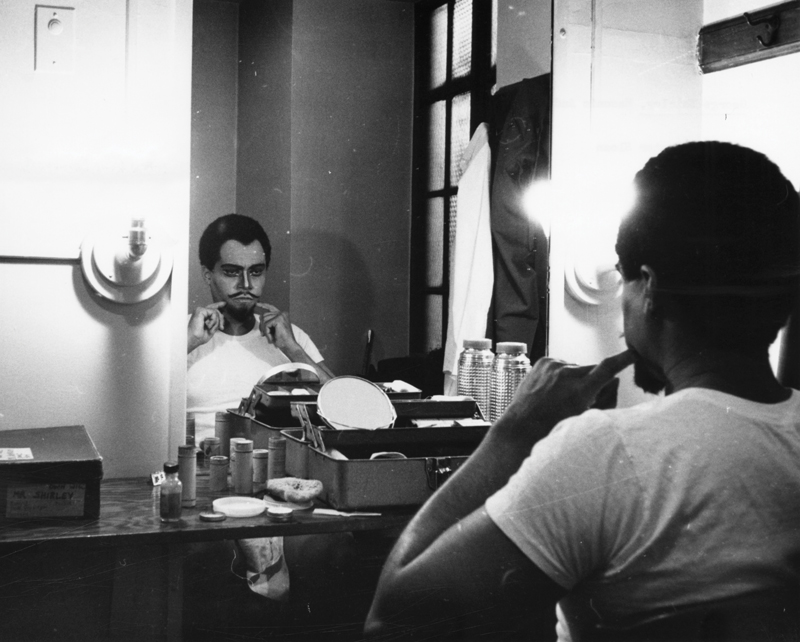
1966
It’s always interesting to speculate what goes on in a performer’s mind before show time. There’s usually a mélange of anxiety and excitement, a determination to do one’s best, and, of course, the inevitable butterflies in the belly.
On the evening of May 25, 1966, tenor George Shirley’s butterflies must have been fluttering wildly, because he was performing on his home turf, with friends, family, and colleagues likely supporting him in the audience.
Here, he is adjusting his beard and makeup in his dressing room before a performance of Mozart’s Don Giovanni at Detroit’s Masonic Temple, in which he portrayed Don Ottavio. The opera was mounted by New York’s Metropolitan Opera, back when that company used to tour to select cities.
Although he was born in Indianapolis in 1934, Shirley and his family migrated to Detroit when he was age 6. The little lad could hardly have envisioned he’d achieve several historic firsts: The first black tenor to perform in a major role at the Metropolitan Opera (Ferrando in Mozart’s Così fan tutte, in 1961); the first African-American to teach music in a Detroit high school (at Miller High, in the 1950s); and the first African-American to sing in the U.S. Army Chorus.
In 2015, President Obama honored the tenor with the National Medal of Arts. Shirley was a graduate of Detroit’s Northern High School and Wayne State University and planned to forge a career teaching music. He had no aspirations for the operatic stage, but an Army Chorus buddy introduced him to his teacher, who encouraged Shirley to study opera. There was no looking back, and Shirley sang at the world’s top opera companies, including 11 years with the Met.
He also picked up a Grammy in 1968 for his RCA recording in the role of Ferrando in Così fan tutte. As his career began to wind down, Shirley returned to teaching, first at the University of Maryland, then at the University of Michigan, where he served on the music faculty until his retirement in 2007. The university named him the Joseph Edgar Maddy Distinguished Emeritus Professor of Music, a title he retains today.
|
|
|










